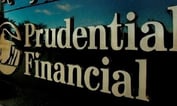While some firms buck the trend, overall advisor satisfaction with their broker-dealers continues to decline, according to the latest J.D. Power study of wealth managers, released Thursday.
Most important, the study finds, the drop is sharpest among the highest producers.
“Among investors, the most affluent and profitable clients tend to be the most satisfied because they get more attention and value from their firm,” said Mike Foy, director of the wealth management practice at J.D. Power, in a statement. “With advisors, we see the exact opposite.”
The study tracks satisfaction tied to compensation, firm leadership, professional development, operations, client support, technology and problem resolution.
Among advisors with more than $1 million in annual fees and commissions (or production), overall satisfaction is 683, down 27 points from 2016. In contrast, for advisors with less than $250,000 in production, overall satisfaction is 799, up 35 points from 764 in 2016.
(Related: Best Full-Service Investment Firms Ranked by Investors: J.D. Power — 2017)
“A confluence of factors, including continuing changes to compensation, uncertainty over the Department of Labor fiduciary rule, emerging technologies like robo-advisors and waning faith in firm leadership are all contributing to the trend,” the report explained.
Foy points out that four in 10 advisors do not have a complete understanding of how the rule affects their practice, while one in five has indicated that their broker-dealers have not given them specific information on what the rule means in terms of account changes for their clients.
Read on to see how different firms are doing in terms of advisor satisfaction and how likely employee and independent advisors are to depart over the next year or two.








 June 29, 2017 at 06:13 AM
June 29, 2017 at 06:13 AM











 Overall satisfaction averages 719 among employee advisors, down 3 points from 722 in 2016.
Overall satisfaction averages 719 among employee advisors, down 3 points from 722 in 2016.